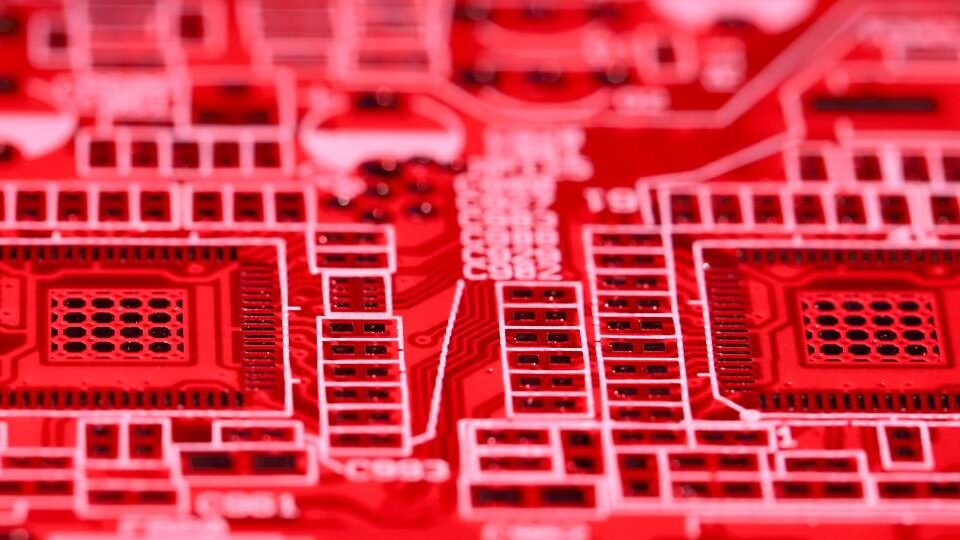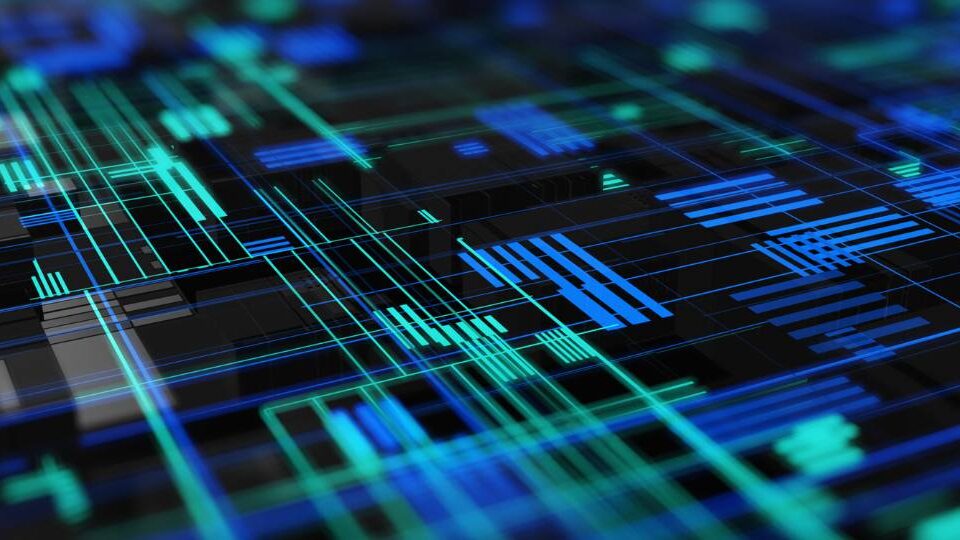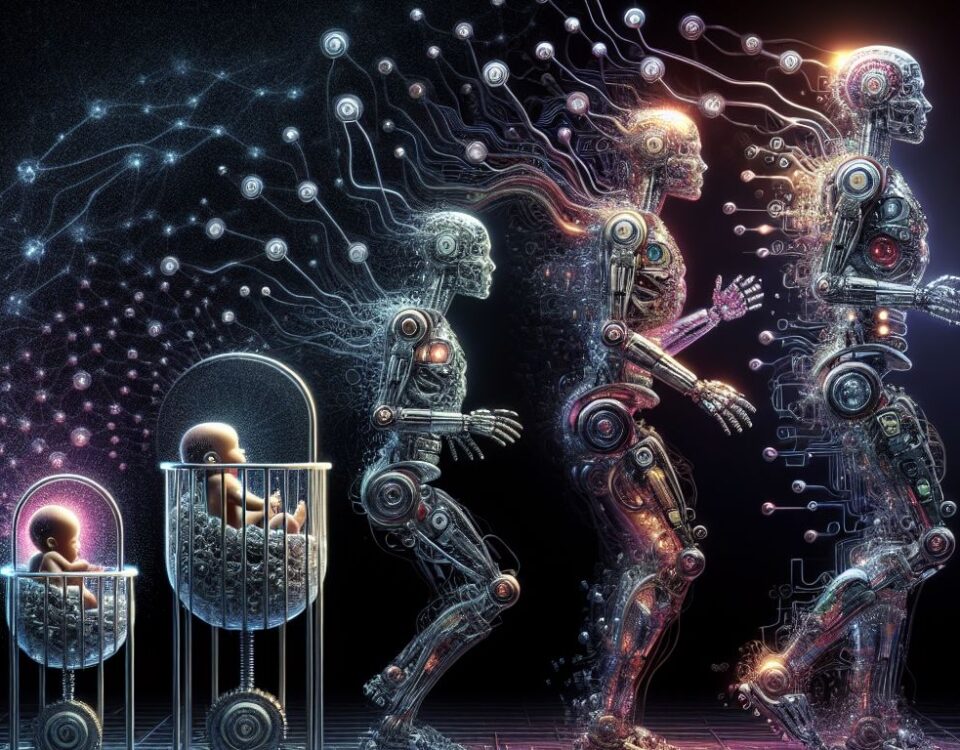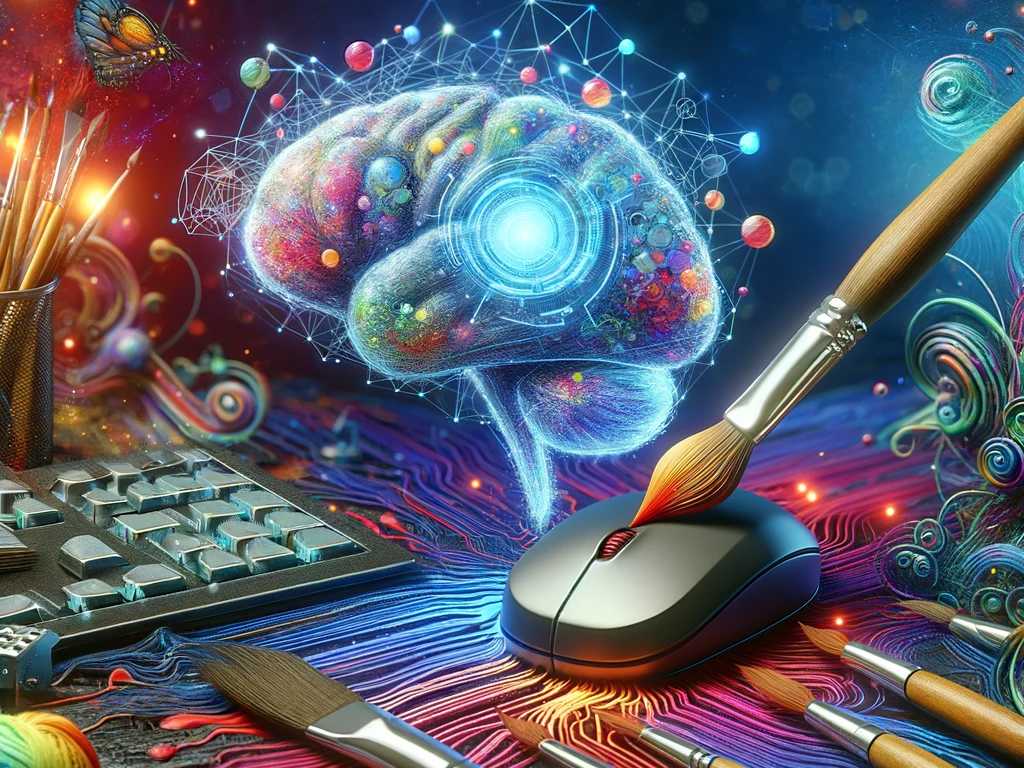
DALL·E 3 is HERE!
November 7, 2023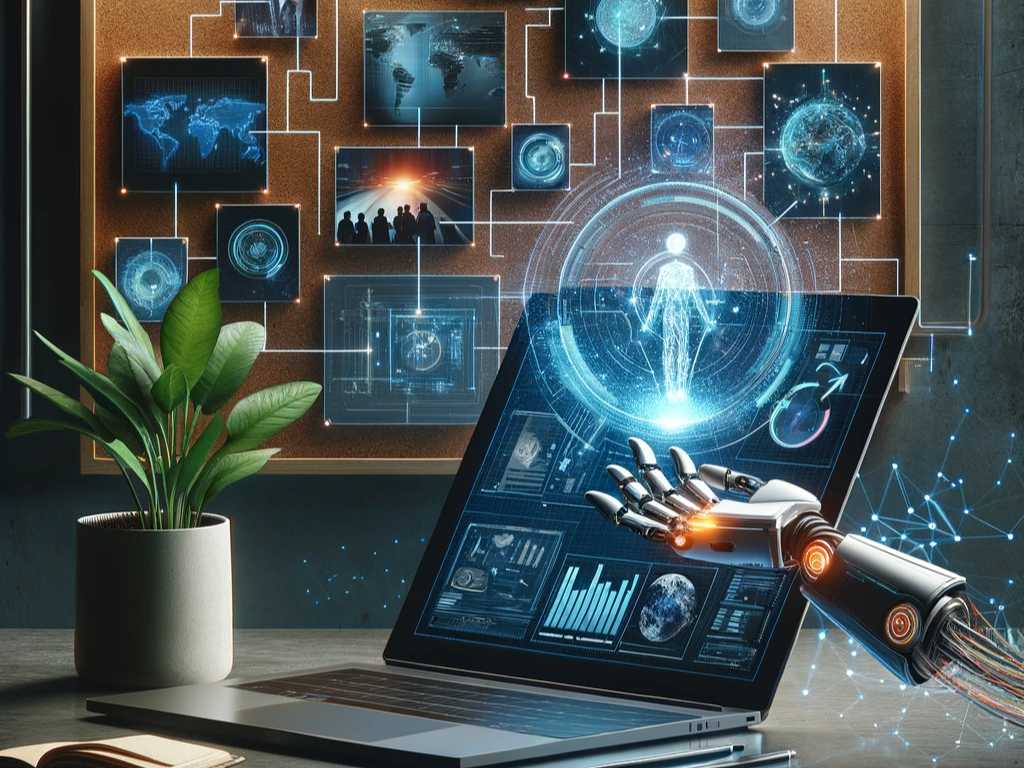
Next Stop Engagement: The Rise of Influencer Marketing with AI
November 13, 2023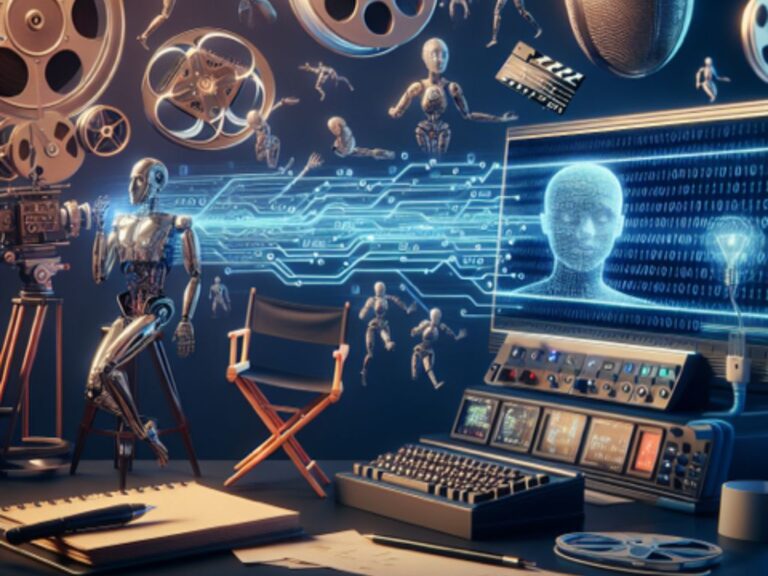
Revolutionizing the Reel: The Future of Videos Powered by AI
The movie-going experience has always been about the grandeur of storytelling, the emotional connection with on-screen characters, and the shared laughter and tears in a darkened theater. But as we sail through the 21st century, the future of cinema is poised to embrace a transformative ally: Artificial Intelligence (AI). AI is not just a buzzword; it’s the rising star in the film industry, set to redefine the creation, distribution, and consumption of cinematic content.
Shaping the Script with AI
The inception of every great film lies within the script, the blueprint of all narratives that unfold on the screen. AI’s role in future scriptwriting is envisaged to be a collaborative one. By analyzing thousands of successful screenplays, AI can offer unparalleled insights into story structure, character development, and dialogue trends. This predictive capability will enable screenwriters to craft stories that resonate with audiences on a deeper level, ensuring commercial success and critical acclaim.
Casting and Performance Enhanced by AI
Casting the perfect actor for a role is an art form in itself. In the future, AI may aid casting directors by suggesting actors who not only fit the physical and emotional profile of the characters but whose previous performances have resonated with similar target demographics. Moreover, AI technologies like deep learning could be used to analyze an actor’s previous work to predict the chemistry between potential co-stars.
AI is also set to revolutionize performances. With advancements in CGI and machine learning, AI-generated characters could deliver nuanced performances that were once the exclusive domain of human actors. These AI videos can provide a cost-effective solution for background characters or enable the recreation of performances from actors who have passed away, ensuring their legacies endure.
Production Efficiency Through AI
AI’s influence on the production process promises to streamline the most complex aspects of filmmaking. AI algorithms can assist with location scouting by analyzing geographical data to suggest ideal filming locations. In post-production, AI can automate tasks such as color correction and sound design, reducing the time and cost involved in these processes.
Moreover, visual effects, a cornerstone of modern cinema, are set to reach new heights with AI. AI can generate realistic textures, environments, and even simulate natural phenomena like weather, making the impossible possible on-screen without the need for costly practical effects or on-location shoots.
Distribution and Personalization with AI
The distribution of films has evolved with the advent of streaming services, and AI will play a crucial role in how content is brought to viewers. AI algorithms are already curating personalized recommendations for audiences, ensuring that viewers discover movies tailored to their preferences. In the future, AI might also optimize release dates and marketing strategies based on predictive analytics, ensuring maximum engagement.
Conclusion: The Co-Star, not the Star
As we look to a future where AI infuses every aspect of filmmaking, from script to screen, it is essential to remember that AI is not the protagonist but the supporting character in the story of cinema. The human touch – the passion, the vision, and the creativity of filmmakers – will remain at the heart of the industry. AI is the tool that will empower artists to push boundaries, envision new worlds, and tell stories that captivate the human spirit in ways we’ve yet to imagine.
In embracing AI, the film industry is not just rolling out a new era of AI videos but is setting the stage for a cinematic experience that is more immersive, more personal, and more accessible than ever before. The future of cinema with AI is bright, and as audiences and creators alike, we have front-row seats to this spectacular evolution of storytelling.
Get the power of AI for your marketing campaigns
Simplify campaign management and maximize results with AdMind. Create high quality content, generate images, integrate digital channels, automatize editorial plans, track performance, and optimize for maximum success.
More AI-Marketing News
March 19, 2025
March 19, 2025
Categories
Milano, 13 giugno 2023 - AdMind S.R.L. (https://www.admind.ai), una società italiana specializzata nell'utilizzo dell'Intelligenza Artificiale per lo sviluppo di soluzioni personalizzate, è lieta di annunciare il lancio del portale ‘AI for Business’ per supportare le aziende nell’integrazione e nello sviluppo di soluzioni basate sull’AI
February 9, 2025
February 9, 2025
Categories
Custom Text Classification AI automatically labels and categorizes text data based on user-defined categories. Streamline workflows and organize data with OpenAI and Cohere Models.
February 8, 2025
February 8, 2025
Categories
AI Image Generation transforms text or image inputs into personalized visuals. From marketing campaigns to creative assets, leverage tools like DALL-E 3, MidJourney, and Monster API.
February 8, 2025
February 8, 2025
February 8, 2025
Categories
AI-powered Logo Detection for precise identification of logos in images and videos. Discover secure, custom integrations tailored to your business needs
July 23, 2024
AI has evolved from its 1950s origins, focusing on logical problem-solving, to today's advanced machine learning and deep learning systems, including generative AI, which creates new content, and traditional AI, which analyzes existing data.
Subscribe to unlock the power of AI-driven content marketing and to get free stuff!
I read and accept the Privacy Policy.



